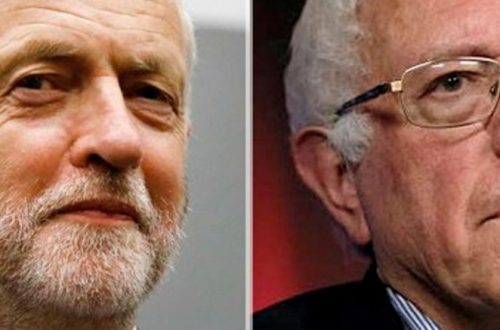By Harry Storm
Given that I have long thought unconscious or implicit bias with regard to race and ethnicity to be a crock, the world’s reaction to the massacre of October 7 in southern Israel and subsequent events has been instructive. Watching hundreds of thousands of anti-Israel protesters line the streets of so many major Western cities, I wondered if this was the result of an implicit cultural bias against Jews going back a long way historically. Wouldn’t that explain the visceral and intense anti-Israel attitudes on display worldwide?
In the end, I decided it doesn’t. The Oxford Learner’s Dictionary defines implicit or unconscious bias as “an unfair belief about a group of people that you are not aware of and that affects your behaviour and decisions.” To me, that sounds like the type of bias that might explain why an office manager may be predisposed to, say, treat good-looking people better than others or short people worse.
But there’s nothing implicit or unconscious in putting hundreds of thousands of protesters raging about Israel onto city streets around the globe, or causing legacy media like the New York Times or the BBC to regularly make errors in their reporting that reflect negatively on Israel.
Now it may well be that there are people who do hold an unconscious prejudice against Jews. After all, Jews were hated in the Christian world for nearly 2000 years; in the Muslim world, Jews (and Christians) were second-class citizens, or dhimmis until the 20th century, when most were expelled because of a perceived connection to the Zionist movement. So I wouldn’t necessarily rule out that some strange remnant of a collective jew-hating consciousness continues to exist both in the West and in the Islamic world.
But these same historical factors also underlie more explicit anti-Jewish bias that often results in wild, often unhinged displays of antisemitism masquerading as anti-Zionism that we see periodically (and currently) in the Muslim world and, increasingly, on our university campuses and our streets.
That explicit anti-Zionism is prevalent worldwide is undeniable. For proof, one need only look to the UN General Assembly, which in 2022, according to UN watch, issued 15 condemnatory resolutions on Israel, and 13 to all other countries in the world combined (Six UNGA resolutions were issued against Russia in 2022 due to its invasion of Ukraine in February 2022; six other states – North Korea, Afghanistan, Myanmar, Syria, Iran and the U.S. – were each targeted with a single condemnatory resolution. No condemnations were issued to other human rights abusing countries, such as Saudi Arabia, China and Venezuela.)
And this was no fluke. Al Jazeera notes that in 2020, the UNGA issued 17 resolutions condemning Israel, and a mere six to all the other countries on the planet. (Israel fares even worse at the United National Human Rights Council, but what else would one expect from a body ostensibly concerned with human-rights that elects the Islamic Republic of Iran to chair its Social Forum.)
The reaction to the Oct. 7 massacre in southern Israel is exposing this very conscious bias like never before. Consider the following:
1 – Within hours of the massacre in southern Israel, the attack was (a) being blamed on Israel (Israel was “100% to blame,” according to a consortium of student groups at Harvard, unwilling to impart even 1% of responsibility to the slaughterers); (b) hailed by Arab/Muslim groups, some of whom, in Sydney Australia, celebrated by shouting “Gas the Jews” at a rally supporting the attack.
2 – Even before the Israeli response to the slaughter of its citizens began in earnest, protests against the expected reaction by Israel began to occur worldwide. Some protesters heeded Hamas’ call for a Day of Rage by targeting Jews for abuse; others initiated the now routine pulling down of posters of the hostages taken by Hamas by both Muslim and non-Muslim students and professionals.
3 – The contrast between how reports from Hamas (e.g. Gaza Health Ministry) are accepted as fact whereas Israeli statements are considered dubious, sometimes even after they’ve been corroborated by impartial witnesses. It’s clear that not only Arabs and Muslims, but also a credulous — and, in my view, consciously biased — media, academics and students accept Hamas figures about casualties at face value, whereas Israeli claims are discounted, always require “more proof,” or, more often than not, simply disbelieved.
Here’s an example: The director of the Sexual Assault Centre at the University of Alberta in Edmonton, Canada, signed onto a letter blaming Israel for Hamas’ attack. Among other things, the letter stated that accusations that Palestinians were guilty of sexual violence were “unverified,” an odd statement for the head of the U of A (or any) sexual assault centre to sign, given that the centre’s own literature instructs volunteers and staff to “show you believe” rape accusations. One can only guess how biased a director of a sexual assault centre must be to write off reports of rape as “unverified.”
Taking Hamas’ claims at face value or denying or ignoring Israeli claims can have real-life implications. For instance, intense protests broke out worldwide after news media, including the BBC and the New York Times, reported that more than 500 people, including physicians and patients, had died after an Israeli missile struck a Gaza hospital, which Israel denied. It was soon proven that (a) the missile was in fact a misfire by Hamas; (b) the missile didn’t strike the hospital, but rather an adjacent parking lot; and (c) far fewer than 500 people were killed (and it’s doubtful there were too many physicians or patients among them).
This explicit anti-Israel bias is almost certainly what drove Sky News presenter Kaye Burley to shock her guest, an Israeli government spokesman, and her audience by asking “does Israel not think Palestinian lives are not valued as highly as Israeli lives?” referring to the “50 hostages in exchange for 150 terrorists in Israeli prisons” deal with Hamas. The shocked guest had to point out that it’s Hamas that insists on 3-for-1 deal, not Israel, which would be much happier to release only one terrorist for each hostage.
Another BBC news report reveals the bias against Israel just as explicitly. On November 15, Reuters news agency reported that Israeli forces entering the Al-Shifa hospital complex included medical teams and Arabic-speaking soldiers. According to the BBC, the newsreader “misread” the report and instead told the viewing audience that on entering the hospital, IDF soldiers “targeted medical teams and Arabic-speakers.”
I worked in a newsroom for many years, and it’s hard – no, virtually impossible – to imagine how a trained journalist could make such a monumental error, and just how deeply invested the newsreader (or whomever wrote the report) must be in an anti-Israel agenda to do so.
And if anyone thinks I’m making too much of this mistake, it’s worth remembering that the BBC has made many errors when reporting on Israel, and strangely, they all seem to go in the same anti-Israel direction.
Unfortunately, neither protesters nor the media have learned from these ideologically driven errors. Israeli claims about a command post under Al-Shifa hospital were ridiculed after only a small arms cache was found there, despite the fact that Amnesty International, no friend of Israel, had reported in 2014 that Al-Shifa was a Hamas base. Subsequent finds by the Israeli military, including that of a large tunnel beneath the hospital, continue to be pooh-poohed or overlooked entirely.
The willingness, even eagerness with which Western news organizations are ready to accept Hamas claims of Israeli wrongdoing without even cursory investigation stands in sharp contrast to the same media’s unwillingness to accept Israeli evidence of Hamas human rights violations and war crimes, or Israel’s claims with regard to the care it takes to protect civilian lives. In short, the one-way errorfest that the media regularly makes with regard to Israel reveals a distinct and explicit bias against the Jewish state.
As do the quantity and size of anti-Israel protests. I can recall no other antiwar protests being carried out simultaneously in various countries except, perhaps, when the U.S. and U.K. invaded Iraq in 2003. But even there, it should be noted that (a) the protests were not as viscerally emotional as the current demonstrations; (b) unlike Hamas, Iraq had not launched an attack on either the U.S. or the U.K.); and (c) the invasion of Iraq was justified by a claim of weapons of mass destruction that was widely disbelieved at the time and was ultimately proven to be false, whereas Israel’s intervention in Gaza has been prompted by the worst massacre of Israelis ever and the worst for Jews since the Holocaust.
Despite this, huge anti-Israel protests, like the one in London which drew nearly half a million people, continue regularly, in New York, Sydney, Toronto, Berlin and Paris, among countless other cities around the globe. And although the size of the protests against Israel for responding to the worst massacre in its history is instructive in itself, it’s the intensity of the protesters, swelled by young Arabs and Muslims, that betrays the explicit bias of its participants. The early protests included people who were plainly giddy with joy over the Hamas slaughter of the hated Israelis. This didn’t last long, joy turning into raging impotence over the inability to stop what was clearly going to be a harsh Israeli retaliation.
But what about the Western university-educated millennials, Gen Z’s and others who scream about war crimes whenever an Israeli soldier lifts his rifle? Does their anti-Israel animus, which appears so much more visceral than, say, the protests against the invasion of Iraq, derive solely from their identitarian hierarchy of oppression, where Palestinians are near the top and Israelis sit at the bottom? Or has living in a society that demonized Jews for 1800 years left an explicit mark that still works to the detriment of Jews in general and Israel in particular.
Perhaps it’s a bit of both. I don’t doubt that oppressor/oppressed politics are a factor, but it’s difficult not to notice how much more intense the demonstrations against Israel currently are compared to, say, demonstrations against apartheid South Africa in the 1980s and early 1990s. Those protests, which were a common sight at university campuses at the time, were against a regime that actively discriminated against the vast majority of its citizens on the basis of race. This was impossible to reconcile with the modern world, and the opprobrium directed at South Africa by protesters and others tended to be more cerebral than emotional.
Contrast that with the constant demonizing and delegitimizing vitriol aimed at Israel continually since its founding in 1948 and the blatant and sometimes unhinged emotionalism displayed by anti-Israel protestors currently following acts of gruesome barbarism perpetrated not by Israel but against it.
Writing in a recent edition of Quillette online magazine, Susan Linfield points to Hamas’ horrific massacre as something for which there is no room for “yes, but.” Why then, she asks, “when it comes to the deaths of Israelis, is this so hard to understand?”
The answer, I’m afraid, can be found in the biases and bigotries of Arab/Muslim and Western protesters and others, who always “contextualize” crimes of Hamas and other Palestinian groups, while never considering context when they attack Israel for its response to those crimes.
Neither the explicit anti-Israel bias by Western leftists and others nor the antisemitism in the Arab/Muslim world show any signs of disappearing or even abating anytime soon, and may well prove to be more difficult for Israel to vanquish than the armed forces of Hamas, Hezbollah, Syria and Iran combined.





